
views
Shopping for Natural Food
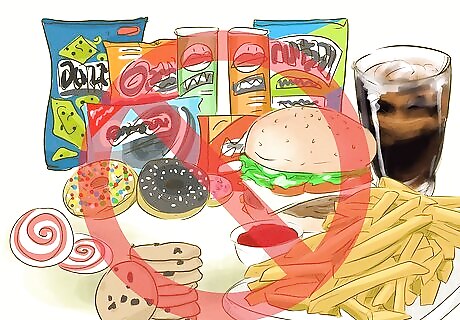
Eliminate processed foods from your diet. The first step towards eating naturally is to stop eating unnaturally. Stop buying processed foods from the grocery store and cut them out of your diet to avoid eating harmful ingredients. Processed foods, like frozen meals, boxed foods, canned goods, etc., often have high amounts of salt and sugar that are unhealthy for you when you eat too much of them.
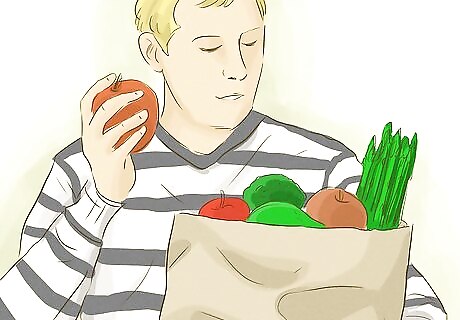
Buy foods that are as close to whole as possible. In addition to cutting out processed foods, you’ll want to buy foods that have gone through as little processing as possible before arriving at the grocery store. Buy foods in their natural state or close to it to get the most health benefits from eating naturally. Foods in their natural state often contain more naturally occurring nutrients and fewer harmful ingredients like added salt. Good examples of foods in their whole state include most fruits and vegetables, whole chickens, and nuts.
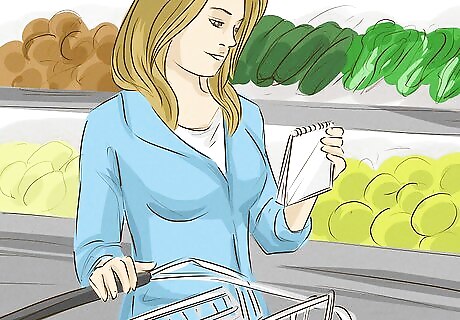
Go to the store often to buy fruits and vegetables when they’re fresh. Given how busy we usually are, it’s tempting to go to grocery store once a week and load up on processed food that lasts longer. However, to enjoy more healthy, natural food, commit to going to the grocery store more often and buying fresh food more frequently. It’s a good idea to keep a running list of things you need from the grocery store stuck to your fridge so you’ll always be able to grab it before making a grocery run.
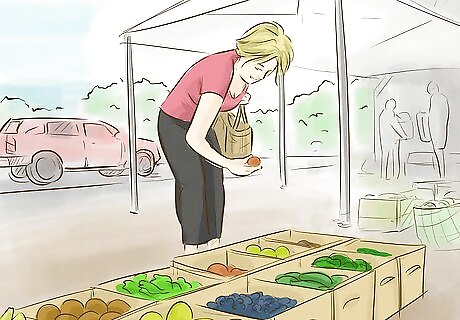
Visit CSAs and farmers markets to buy locally produced natural foods. Community-supported agriculture (CSA) models and farmers markets are very reliable sellers when it comes to natural, organic, pesticide-free produce. Buying from local growers will not only support your local economy, but also make it easier for you to get natural food when it’s fresh! While farmers markets often offer good options, you should still ask specific questions regarding how food is grown. Different markets have different regulations about what food may be sold. It's always best to check with the individual seller to see if the food is organic, if it's been ordered from out of state, etc. Farmers markets also enable you to buy produce that doesn’t travel well and thus doesn’t usually end up in national grocery stores, like red carrots and green garlic.
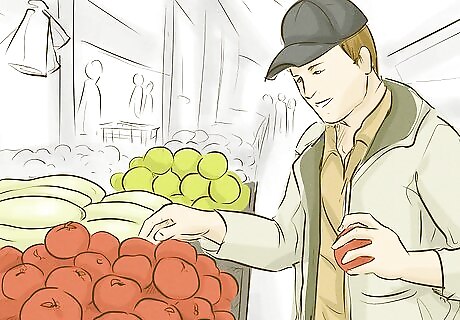
Shop seasonally to get the freshest fruits and vegetables. Most foods will taste better and contain the maximum amount of nutrients when eaten during peak season. Keep track of when your favorite fruits and vegetables are in season and buy them when they’re freshest. For example, apples in the United States are in season all year round, whereas cherries are only in season during summer. Try to buy foods that are grown close to you, if possible. The closer to you a food is grown, the less time it has to spend in warehouses and in transit.
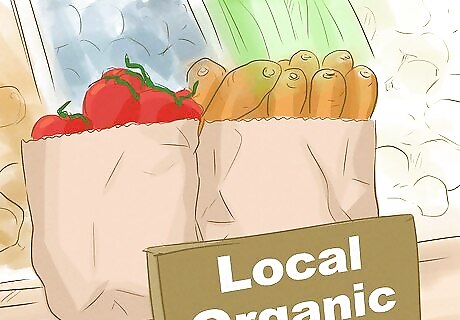
Consider buying more organic food to avoid contaminated produce. Some produce inadvertently comes into contact with pesticides and insecticides when it’s being grown. Consider buying organic food to avoid these contaminants and to make sure your food is as natural as possible. Some foods, including peaches, apples, celery, cherries, and spinach, are more likely than other foods to become contaminated on the farm. If you buy any foods organic, you should prioritize these items. Onions, avocados, and pineapples are among the least likely foods to become contaminated in the growing process. You probably don’t need to buy these organic.
Cooking to Eat Naturally
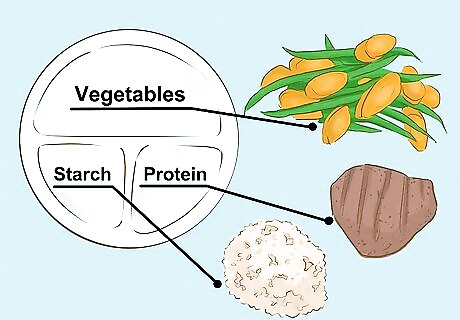
Cook your meals with the proper proportions of staple items. Eating naturally also means eating a balanced meal every time. Devote roughly half of your plate to fruits and vegetables, a quarter to protein, and a quarter to carbohydrates. You should also make sure to add healthy, unsaturated fats to your meals. These can include olive oil, fish oil, canola oil, or other natural plant-based fats. Be sure to drink plenty of water, as well.
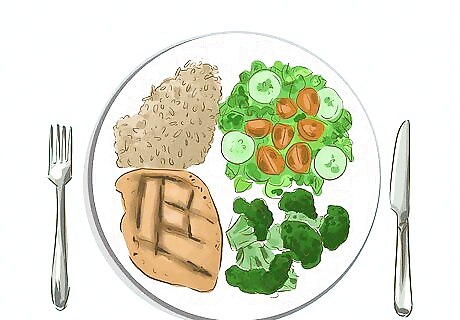
Eat smaller portions to prevent overeating. It’s easy to overeat when we’re given larger portions at a restaurant. Conversely, it’s easier to eat right when we limit our portion sizes. Eat smaller meals in moderation to help your body digest food properly and stay in good health. A healthy way to control your portion sizes is to start using portion-size plates. These will limit the amount of food you can put on your plate and thus help you eat healthier amounts of food at mealtimes.
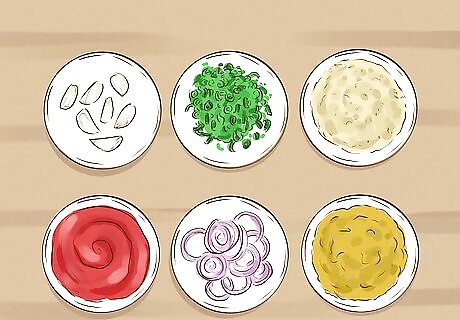
Add fresh herbs to meals to add flavor and depth to your food. Fresh herbs are a terrific way to season your food without adding unhealthy ingredients like extra salt, sugar, or butter. Use herbs instead of these other ingredients whenever possible to make natural, healthy food that won’t cause health problems down the line. Examples of tasty herbs include cilantro, parsley, basil, oregano, and rosemary. Consider growing your own herb garden to have access to the freshest herbs possible!
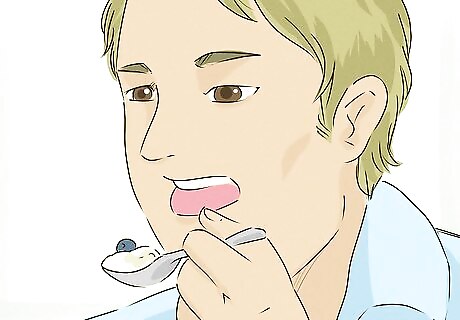
Eat slowly and savor your food. Part of the joy of eating naturally is relishing all that food has to offer; not only for nourishment, but also entertainment, social bonding, and spiritual gratification. When you eat, eat slowly and mindfully with your concentration devoted to the meal. Savor the experience of eating and try to feel your body’s response to it. Pay attention to the rich flavors and textures of the food you’re eating and appreciate the higher quality of the natural food you’ve spent so much time buying and cooking. Don’t let yourself feel guilty about the food you’re eating. Focus on enjoying the experience and remind yourself that what you’re eating is healthy for you.

Make changes to your lifestyle in line with your healthy diet. For the best impact on your overall health, you should look at eating naturally as more than just a diet. Instead, think of it as one aspect of living a healthier life overall and take steps to spread that healthier living to other areas of your daily life. For example, think of the ways that eating naturally positively impacts your body and see what else you can do to have a similar impact. You might consider giving up smoking, exercising more, or getting more sleep each night.












Comments
0 comment